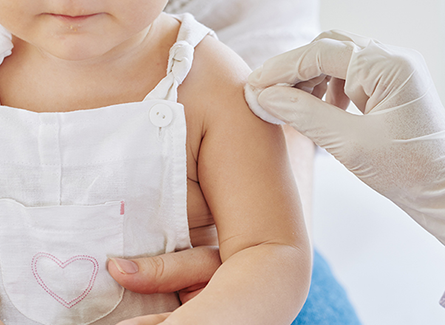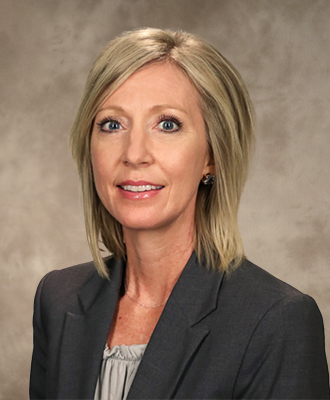
Measles is a highly contagious illness that causes mild, flu-like symptoms and a rash. While it can affect anyone, it most commonly affects school-aged children. For those who aren’t vaccinated against measles, it can lead to severe complications or death. Though it’s not as common as it used to be, cases have been on the rise in recent years due to unvaccinated and under-vaccinated people. Learn what to look out for and how you or your loved ones can avoid getting measles.
Symptoms
Measles symptoms usually begin 10-14 days after being exposed to the virus.
Early symptoms last 4-7 days and may include:
- Dry cough
- Fatigue
- Fever
- Red and watery eyes
- Runny nose
- Small, white spots inside the mouth
- Sore throat
A rash, the most notable measles symptom, begins about 7-18 days after exposure. It will start on the face and neck, and over a few days, it will spread all over the body. The rash lasts about 7-10 days before fading away. Measles is most contagious four days before the rash appears and about four days into having the rash.
Complications
Complications are most common in children under age 5 and adults over age 30. Most people who get measles aren’t vaccinated. If they have a weak immune system, they are more likely to experience complications, such as:
- Blindness
- Breathing problems, like pneumonia
- Ear infections
- Encephalitis, an infection that causes brain swelling and potentially brain damage
- Severe diarrhea and dehydration
Prevention
Measles spread by droplets in the air when an infected person breathes, coughs, sneezes or talks. It can remain active in the air or on surfaces for two hours. Getting vaccinated is the best way to prevent measles. The measles vaccine is commonly combined with vaccines for other illnesses, such as mumps, rubella or varicella. The two types of vaccines that protect against measles include:
- Measles, mumps, rubella (MMR) vaccine
- Measles, mumps, rubella, varicella (MMRV) vaccine
Most people receive the vaccine as an infant. The first part of the vaccine is given to children when they are around 12-15 months. They usually need the second dose of the vaccine when they’re around 4-6 years old. These two doses of the vaccine are 97% effective in preventing measles infection for life. Adults not vaccinated can also get the vaccine.
Takeaway
Talk to your primary care doctor or pediatrician to learn more about measles and ensure you and your little ones are protected against it.



